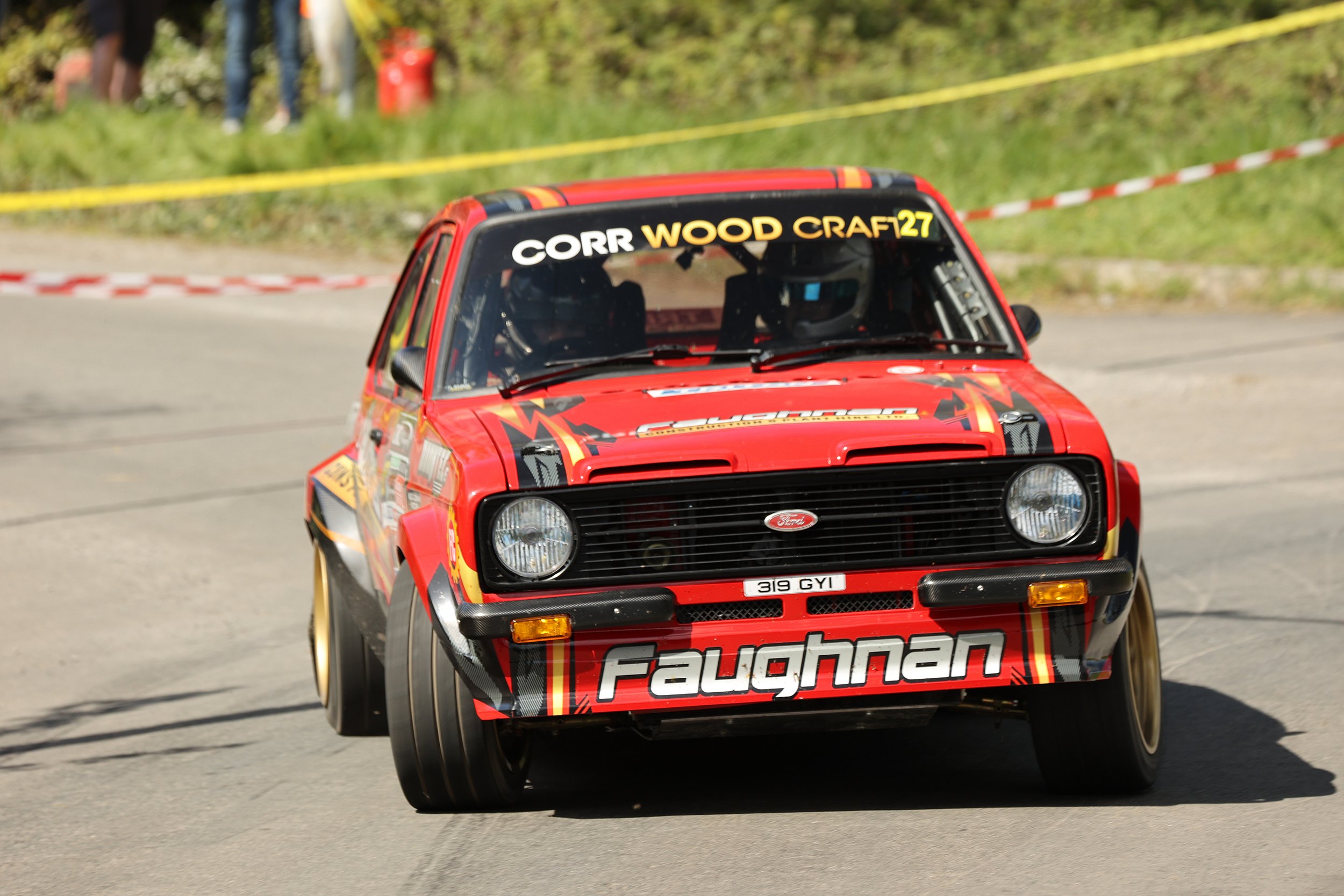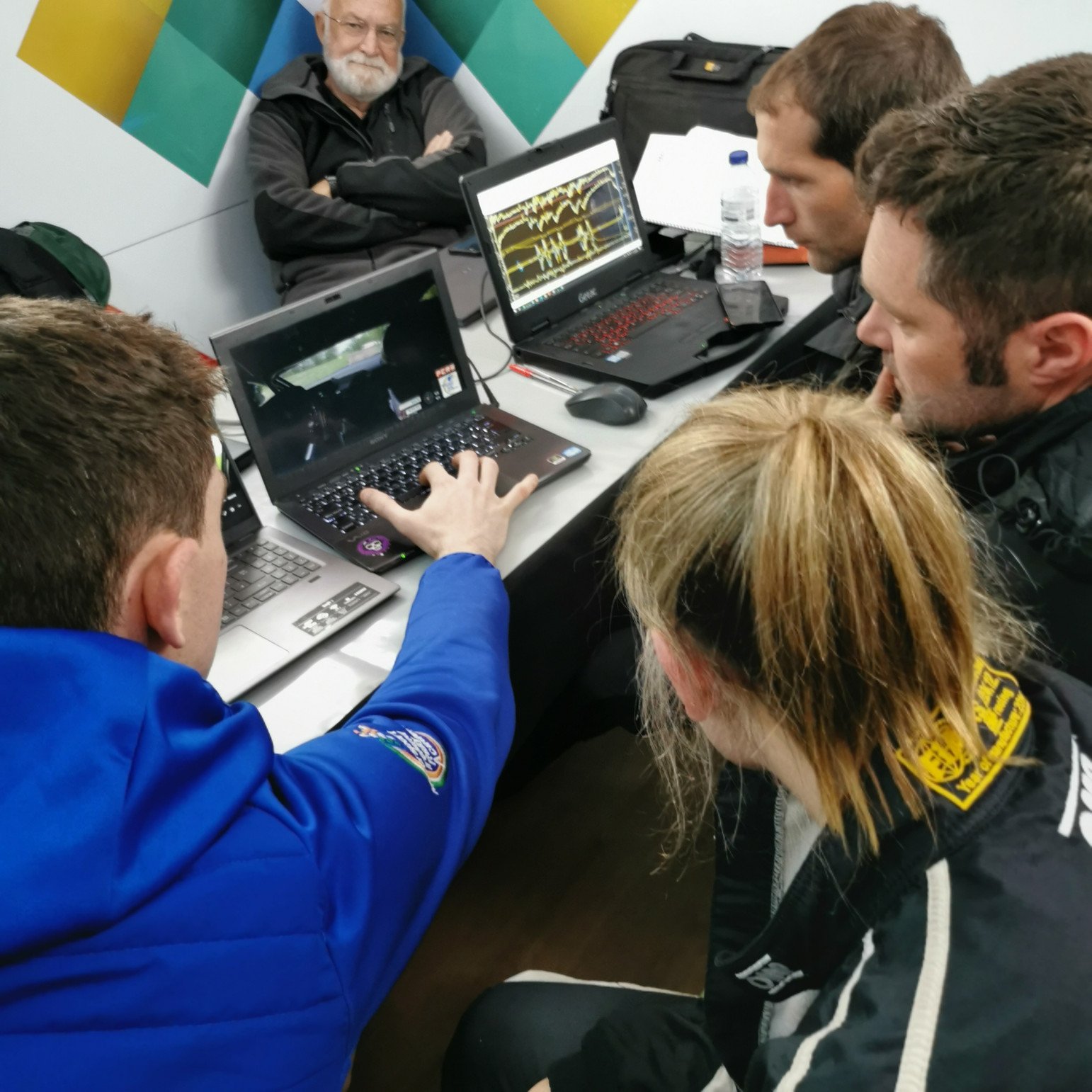
Rallying
Definition:
A rally consists of multiple timed stages that run from Point A to Point B. Each car is equipped with both a driver and a navigator. The winner of the rally is determined by the best overall combined time across all stages. Unlike circuit racing, where cars compete side-by-side, in a rally, vehicles are released into the timed stage sections at regular intervals.
How to get a Rally Driving Licence
Introduction Pack Application
The first step to obtaining a Rally Licence is to apply for an ‘Introduction to Motorsport’ course pack, which comes with a €10 registration fee to enrol you in the system. After completing the application, you will receive a reference number along with materials on how to book your course at one of our two registered rally schools, located in Waterford and Monaghan. Once you have this information, you'll be ready to go!
To book directly, scroll down to the next section!
Rally School
Training Day
When you contact your chosen rally school, they will inform you of the available dates for your Rally Training Day. You will receive instruction both in a classroom setting and on the track, preparing you for an assessment at the end of the day. If you pass the test, you will receive an Assessment Sheet, which can be submitted as part of your licence application. Please note that it is possible to fail the test, so we advise against booking it on short notice before an event.
Final Rally Licence Application
The final step in the application process occurs once you have successfully completed the course at your chosen rally school. At that point, you can submit an application to Motorsport Ireland for either a Rally National B licence or a Rally Junior licence, depending on your age. Upon approval, you will be eligible to compete in MI-permitted race events. Please note that there will be restrictions on engine size at the National B and Junior levels; however, as you gain experience, you can upgrade to a higher grade.
Upgrading Your Licence
Once you have completed enough events, you can upgrade your licence to a National A grade or even an International grade. For every five events you complete (excluding heats), you become eligible to move up to the next highest level. If you are a Junior competitor, you can upgrade to a National B licence once you turn 17 and hold a full road driving licence. However, you may retain your Junior licence until you are 18 years old. The upgrade is not immediately mandatory, and there exists a crossover choice period.
Licence Grades
International ITC-R
National A
National B
Junior A
Junior B
Start your journey!
You can kickstart your career right here by ordering your Introduction to Motorsport Course pack. This email will provide you with a mandatory reference number for booking your course, information about the training school, and details on how to apply for your first licence.
Rally Navigators
Navigators provide pacenotes to the driver, offering a shorthand description of the corner ahead. This invaluable resource aids the driver in navigating the twists and turns of the upcoming terrain.
Obtaining a Rally Navigator licence involves far fewer restrictions than securing driving grades. There is no mandatory training day at a rally school, and the medical requirements are much simpler. As a result, most individuals can quickly obtain this licence and jump right into the car.
Classes
Throughout the calendar of rally events, you may encounter various classes of rally cars competing in different events. Each class is subject to stringent technical requirements that dictate who you compete against in the rally, allowing for multiple winners across different classes in addition to the overall winner. Regardless of the car you enter, you're sure to find a place to compete.
For a complete list of classes, we recommend reading Appendix 29.1 of the Motorsport Ireland Yearbook, which provides a detailed breakdown of each class and its requirements.



